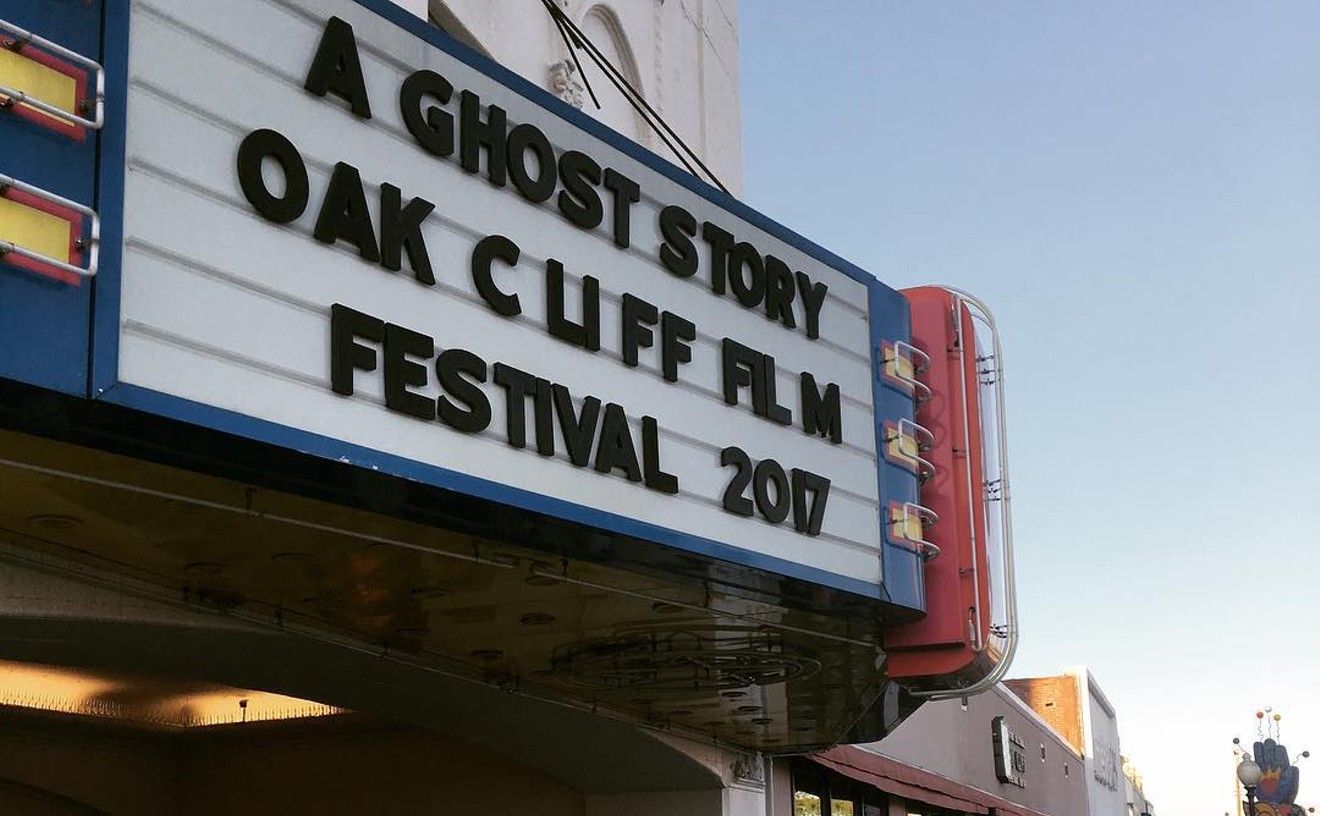The project was born when Tracy Rector of SafeHaven, a local women’s shelter, asked Robinson to make a film about intimate partner violence. While it was initially planned as a short film, the filmmaker found the topic’s complexity demanded a feature-length treatment.
“While I was researching, I realized there is no way that I could do this topic service in 15, 20 minutes,” Robinson says. “I went back to her and said, 'What if we make it a feature film?' We got the funding together, we had to fight and scrap, and the film was made.”
Shot in North Texas, No Ordinary Love tracks the intertwining lives of two women trapped in domestic abuse situations. Tanya (played by DeAna Davis), is married to a police officer who’s prone to sudden bursts of violent, physical abuse, and Elizabeth (April Hartman), suffers a more spiritual, psychological form of abuse at the hands of her pastor husband.
The fact that one abuser is a police officer and the other a pastor was a very deliberate choice on Robinson’s part.
“With the police officer I researched the top professions of known abusers,” the filmmaker says. “We see that in police officer households, domestic abuse rates are way higher than in general population households. That’s something that’s very real and that we don’t talk a lot about.”
Robinson’s decision to choose a pastor as the other abuser had more to do with her own experiences growing up in Fort Worth.
“I’m in Texas, churches on every corner. Spirituality is a very big deal,” she says.
Robinson says she witnessed behavior within these local church communities that was antithetical to the core values they espoused. In particular, she cites how a prominent figure at a Fort Worth seminary was fired in part because “he was counseling a woman and saying 'I know your husband is abusing you, but go back and pray about it, and it might get worse before it gets better, but just keep praying for him,'” she says.
While creating an unflinching look at the abusers was crucial for the film, Robinson was more concerned with the female victims in the story. She felt she could offer a unique and more authentic representation of their plight and suffering.
“Any time that we’ve seen any kind of movie dealing with abuse, it’s usually written and or directed by a male,” Robinson says. “I thought it was really important for a female to tell this story. When I wrote it, I was thinking how can I tell these two different stories, through the eyes of these women, and make them intersect.”
Having a female perspective alone was not sufficient to accurately depict her characters’ experiences with abuse; Robinson understood that extended, thorough research would also be a requisite.
“The research was so educational and enlightening, I had no idea there were so many different faces of abuse,” she says.
Robinson pored over statistics, court cases and newspaper articles. She also immersed herself in local trials and court-mandated sessions with offenders. But most important was her direct conversation with the victims themselves.
“Any time that we’ve seen any kind of movie dealing with abuse, it’s usually written and or directed by a male ... I thought it was really important for a female to tell this story." – Chyna Robinson
tweet this
“I spoke with over 20 women, 20 survivors, of some form of intimate partner violence,” Robinson says. “There is a lot of research in what I do because I want the story to feel real.”
The careful research behind the film ensured Robinson that she would both accurately portray domestic abuse and also be respectful to real-life victims. Robinson also understood that she had a responsibility to create characters and a story her audience could get invested in.
“We knew that we didn’t want a documentary,” Robinson says. “If you just pitch it as, 'Hey, there’s this movie about domestic violence,' people are not running to see that.”
Her solution was to underscore the fact that in abusive relationships, love is often still present.
“It’s about relationships,” she says. “You really do love this person, and 90 percent of the time, they’re showing you that same love. And then there’s this other ugly side, and you just don’t know what to do with it.”
Robinson’s film can be difficult — at times quite terrifying — to watch. Yet the romantic aspect of the story provides emotional arcs to the characters that somewhat mitigates the intensity of the abuse on display.
“You want to be respectful to those that have been in that situation, or are in that situation,” Robinson says. “But also you want people who don’t know what domestic violence looks like to also want to see the movie.”
No Ordinary Love is now available for rent or purchase on various streaming platforms, including iTunes, Amazon and Google Play.











